Publications
Articles, publications, books, tools and multimedia features from the U.S. Institute of Peace provide the latest news, analysis, research findings, practitioner guides and reports, all related to the conflict zones and issues that are at the center of the Institute’s work to prevent and reduce violent conflict.
On the Issues: U.S.-Pakistan-India
In November 2010, U.S. President Barack Obama took a ten-day trip throughout Asia to focus on economic issues. However, his first stop in India put a spotlight on the long-running tensions between India and Pakistan over the Kashmir region.
On the Issues: What if Kabul Bank Fails?
Afghanistan’s largest commercial bank, Kabul Bank, went into turmoil after its top two directors stepped down in early September 2010 amid allegations of systemic corruption. Kabul Bank shortly thereafter froze the assets of the former chairman and former chief executive officer, as well as those of several other shareholders and major borrowers. USIP’s Raymond Gilpin provides context and offers his perspective on this crisis.
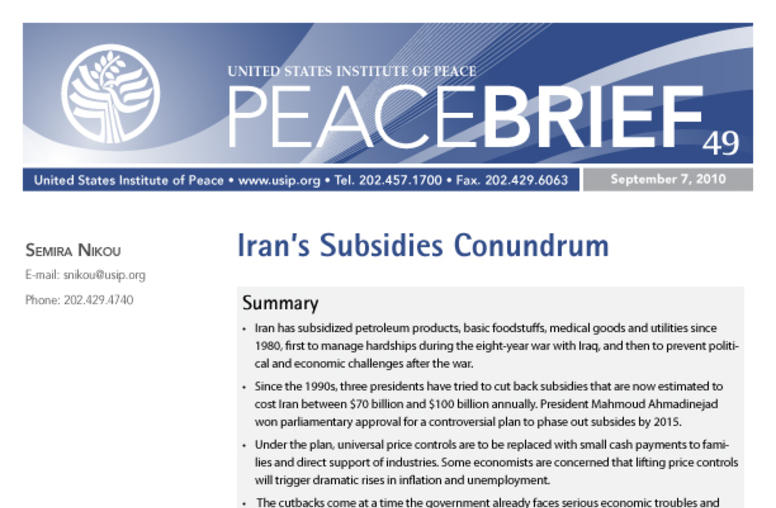
Iran's Subsidies Conundrum
This Peace Brief was written in advance of Iran’s subsidy reform. Currently scheduled for the end of September, the reform is one of the most debated and anticipated economic overhauls in the country. It has the potential to incur severe consequences in a country already burdened by sanctions and fraught with inflation and unemployment. At the same time, reform can potentially discourage waste, reduce inefficiencies in industries, and be a catalyst for economic liberalization.
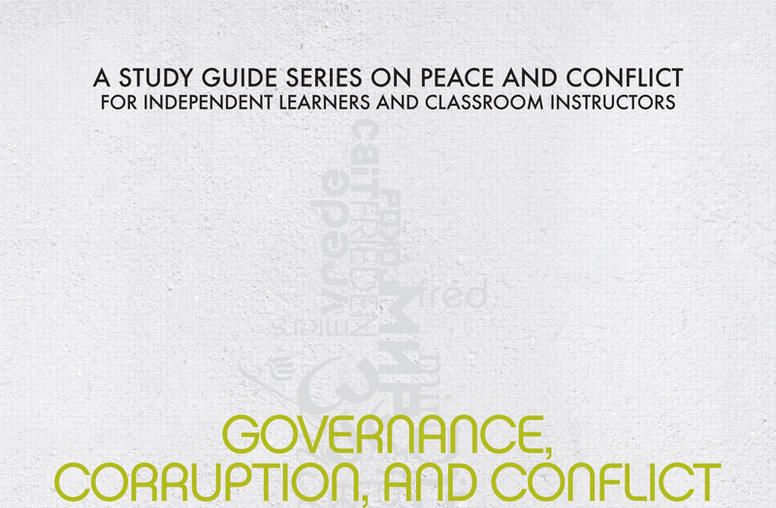
Governance, Corruption, and Conflict
Corruption exists in all societies but its cost are particularly high for states emerging from conflict. Not only can it retard development but it can also create further instability. This study guide will help students understand the relationship between corruption and conflict and learn about ways to address corruption and promote good governance.
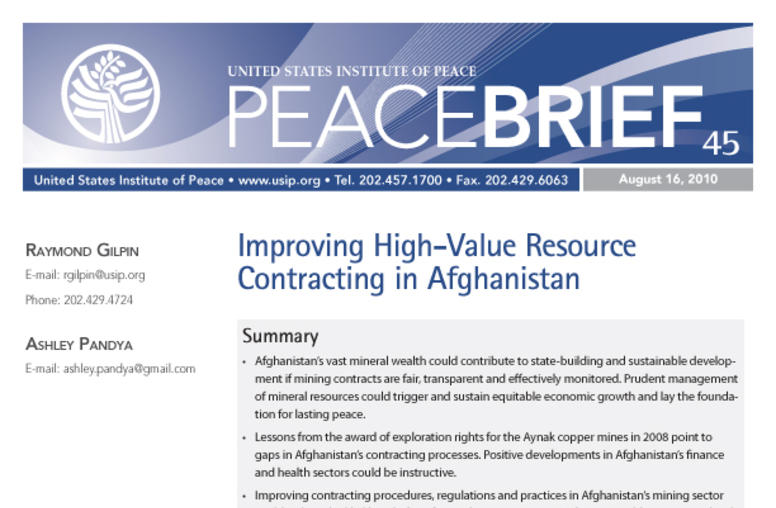
Improving High-Value Resource Contracting in Afghanistan
Afghanistan’s vast mineral wealth could contribute to state-building and sustainable development if mining contracts are fair, transparent and effectively monitored. Prudent management of mineral resources could trigger and sustain equitable economic growth and lay the foundation for lasting peace.
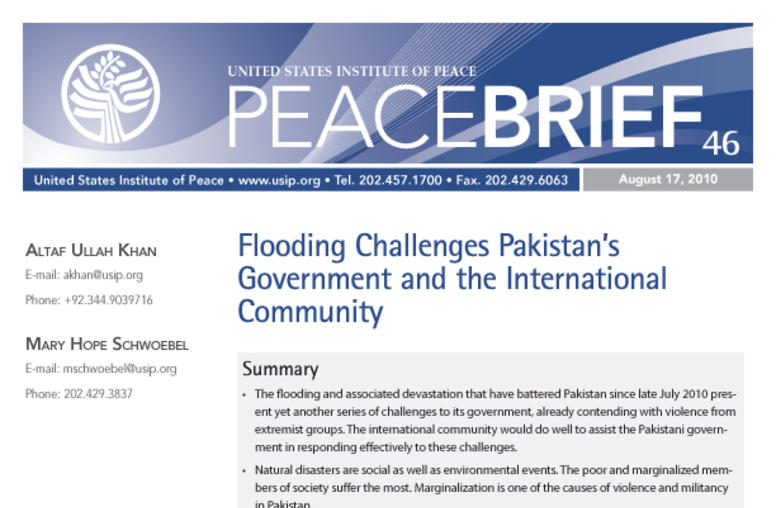
Flooding Challenges Pakistan's Government and the International Community
The flooding and associated devastation that have battered Pakistan since late July 2010 present yet another series of challenges to its government, already contending with violence from extremist groups. The international community would do well to assist the Pakistani government in responding effectively to these challenges.
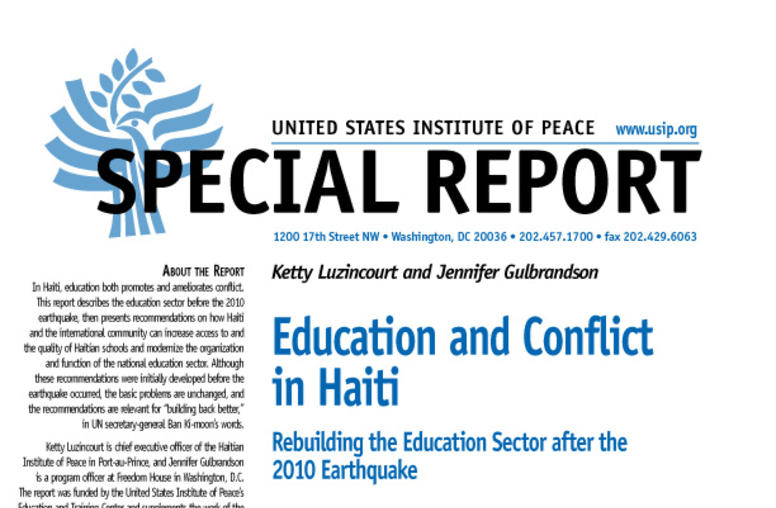
Education and Conflict in Haiti
The massive earthquake of January 2010 devastated almost every aspect of Haitian society, but it also presented an excellent opportunity to address the problems of the largely dysfunctional education sector.
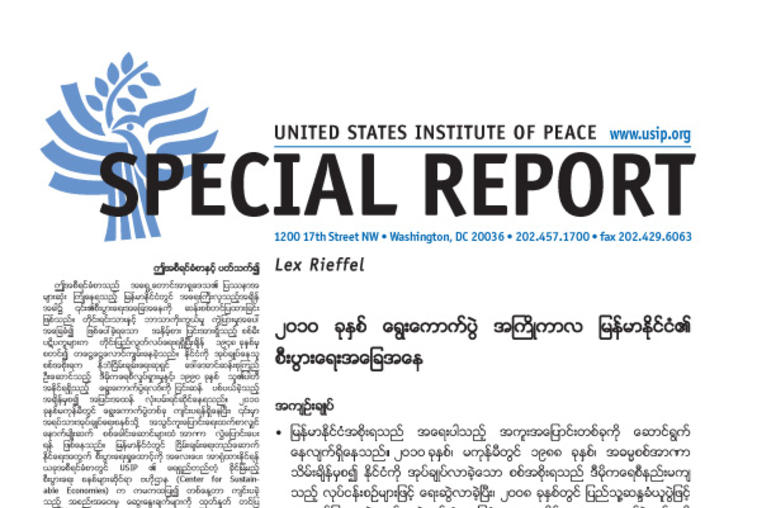
The Economy of Burma/Myanmar on the Eve of the 2010 Elections (Burmese edition)
The government of Burma is undergoing a critical transition: Before the end of 2010, the military regime that has ruled the country since a palace coup in 1998 will hold an election based on a constitution drafted in a nondemocratic process and approved by a referendum in 2008. The referendum fell far short of global standards of credibility and the election is likely to yield a government that neither the antimilitary movement nor the international community views as legitimate. However, t...
What Does the G20 Toronto Declaration Mean for Conflict-Affected States?
Leaders of G20 nations reached consensus on a set of measures to address current and emerging global economic and financial challenges during their 26-27 June meeting in Toronto, Canada. Raymond Gilpin and Amanda Mayoral with USIP’s Sustainable Economies Center of Innovation examine some implications for conflict-affected states.
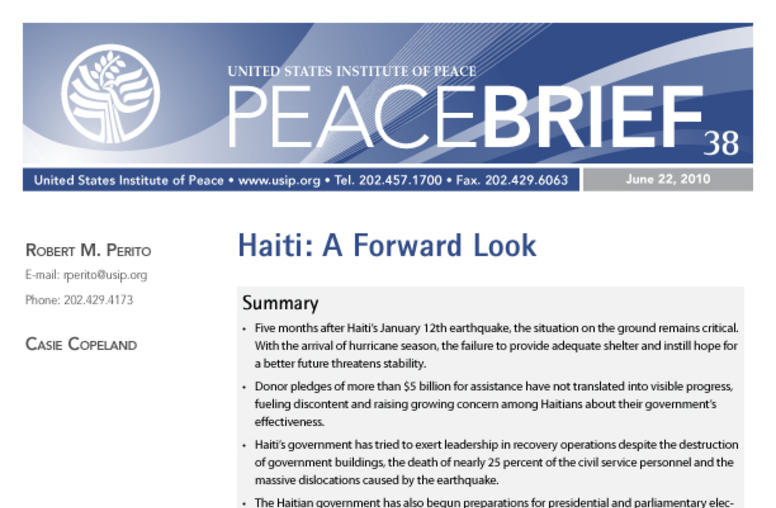
Haiti: A Forward Look
Five months after Haiti’s January 12th earthquake, the situation on the ground remains critical. With the arrival of hurricane season, the failure to provide adequate shelter and instill hope for a better future threatens stability.